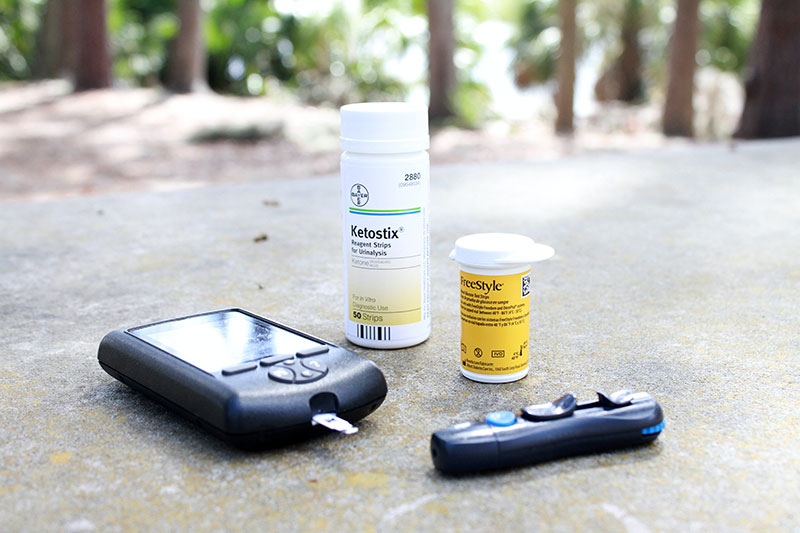Conditions Treated
Obesity
 Obesity is a serious health problem that is defined as abnormal or excessive fat accumulation that presents a risk to a person’s health. One popular measure of obesity is the body mass index (BMI), a person’s weight (in kilograms) divided by their height (in meters). A person with a BMI of 30 or more is generally considered obese.
Obesity is a serious health problem that is defined as abnormal or excessive fat accumulation that presents a risk to a person’s health. One popular measure of obesity is the body mass index (BMI), a person’s weight (in kilograms) divided by their height (in meters). A person with a BMI of 30 or more is generally considered obese.
Obesity is a major risk factor for a number of chronic diseases, including diabetes, cardiovascular diseases and cancer. Obesity is also a risk factor for suffering serious complications from COVID-19.
Obesity can result from a variety of genetic and lifestyle factors, including dietary choices an frequency of exercise. A number of studies have shown that preventive counseling for obesity is effective for helping patients improve both their body mass index and other health metrics.
Prediabetes
 Prediabetes is diagnosed when a patient’s blood sugar level is higher than normal but not high enough to support a diagnosis of type 2 diabetes. You might see prediabetes described as impaired fasting glucose or impaired glucose tolerance. According to the CDC, approximately 88 million American adults—more than 1 in 3—have prediabetes. Of those with prediabetes, more than 84% don’t know they have it.
Prediabetes is diagnosed when a patient’s blood sugar level is higher than normal but not high enough to support a diagnosis of type 2 diabetes. You might see prediabetes described as impaired fasting glucose or impaired glucose tolerance. According to the CDC, approximately 88 million American adults—more than 1 in 3—have prediabetes. Of those with prediabetes, more than 84% don’t know they have it.
Patients diagnosed with prediabetes are at significant risk of developing type 2 diabetes. There are also at increased risk for a heart attack or stroke. Patients with prediabetes should be proactive, as it can be reversed by increasing physical activity and improving dietary choices.
Diabetes
 Diabetes is a chronic health condition that affects the production and regulation of the body’s insulin hormone. When the production of insulin is impaired, serious health complications such as heart diseases, vision impairment, and kidney disease can result.
Diabetes is a chronic health condition that affects the production and regulation of the body’s insulin hormone. When the production of insulin is impaired, serious health complications such as heart diseases, vision impairment, and kidney disease can result.
There are three types of diabetes:
Type 1 Diabetes: Type 1 diabetes is thought to be caused by an autoimmune reaction that prevents the body from making insulin. Children, teens, and young adults are at higher risk for type 1 diabetes. A person suffering with it has to take insulin every day to survive. Approximately 5-10% of people who have diabetes have type 1 diabetes.
Type 2 Diabetes: Individuals with type 2 diabetes insulin suffer from elevated blood sugar levels. About 90-95% of people with diabetes have type 2 diabetes. It usually develops over many years and is more commonly diagnosed in adults, although the incidence of type 2 diabetes among children, teens, and young adults is increasing. Unlike type 1 diabetes, type 2 diabetes can be prevented or reversed with a healthy lifestyle, such as sleeping well, eating healthy food, and being active.
Gestational Diabetes: Gestational diabetes can strike pregnant women who have never had diabetes. If you have gestational diabetes, your baby could be at higher risk for health problems. Gestational diabetes usually resolves after your baby is born but it increases your risk for type 2 diabetes later in life. Your baby is also more likely to have obesity as a child or teen and more likely to develop type 2 diabetes later in life.
Patients diagnosed with diabetes should monitor their blood sugar levels carefully and take medications as prescribed. If you are diagnosed with diabetes, be sure to meet regularly with your healthcare provider and follow their instructions. This is especially important when you are making lifestyle changes that may require changes in your medication.
High Blood Pressure
 High blood pressure, also known as hypertension, is referred as ‘the silent killer’ because many people feel fine and are unaware of their condition. If left untreated, high blood pressure greatly increases your risk of a visit to the hospital. High blood pressure forces the heart to pump harder and results in hardening of the arteries, or atherosclerosis, stroke, kidney disease, and heart failure.
High blood pressure, also known as hypertension, is referred as ‘the silent killer’ because many people feel fine and are unaware of their condition. If left untreated, high blood pressure greatly increases your risk of a visit to the hospital. High blood pressure forces the heart to pump harder and results in hardening of the arteries, or atherosclerosis, stroke, kidney disease, and heart failure.
Risk factors for high blood pressure include obesity, drinking excessive amounts of alcohol, smoking, and a family history of hypertension.
According to guidelines from the American Heart Association (AHA) and the American College of Cardiology (ACC), a blood pressure reading of 120/80 to 129/80 is classified as elevated blood pressure. Hypertension is defined as a reading of 130/80 or higher. More than 80 million Americans (33%) have high blood pressure, and as many as 16 million of them do not even know they have the condition. High blood pressure often has no signs or symptoms.
It is vitally important to detect and treat high blood pressure. Individuals with high blood pressure are at much higher risk of a fatal heart attack or stroke. They are also at higher risk of fatal Coronavirus disease (COVID-19).
Here is the good news: Once diagnosed, high blood pressure can be controlled through a combination of lifestyle changes and medication.
High Cholesterol
 Cholesterol is a waxy, fat-like substance made in the liver and found in certain foods from animals, such as dairy products, eggs, and meat. The body needs cholesterol in order to function properly, however, high levels of cholesterol obstruct the blood flow in the arteries and increase the risk of heart disease. According to the CDC, 95 million U.S. adults age 20 or older have total cholesterol levels higher than 200 mg/dL and nearly 29 million adult Americans have total cholesterol levels higher than 240 mg/dL. There are several factors that are associated with high cholesterol, including as age, family history, lifestyle, weight and level of physical activity.
Cholesterol is a waxy, fat-like substance made in the liver and found in certain foods from animals, such as dairy products, eggs, and meat. The body needs cholesterol in order to function properly, however, high levels of cholesterol obstruct the blood flow in the arteries and increase the risk of heart disease. According to the CDC, 95 million U.S. adults age 20 or older have total cholesterol levels higher than 200 mg/dL and nearly 29 million adult Americans have total cholesterol levels higher than 240 mg/dL. There are several factors that are associated with high cholesterol, including as age, family history, lifestyle, weight and level of physical activity.
Cholesterol can be treated with medication. Making lifestyle modifications can also be an effective way to lower cholesterol.